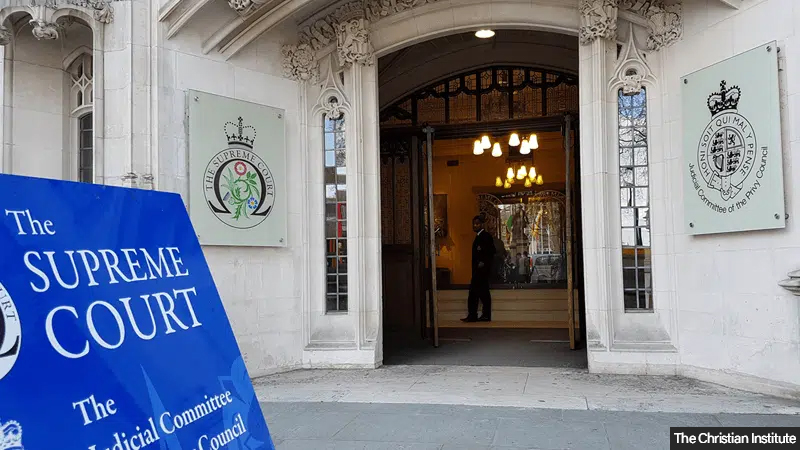
Scotland shelves conversion therapy plans to avoid legal battle
By Joanna Timm
Every September the Scottish Government publishes its new legislative programme for the year ahead. Along with setting out the Government’s intentions for the next twelve months, it lists the Bills it is pledging to introduce.
Last year’s Programme for Government promised a public consultation on ‘ending conversion practices’ by the end of 2023 (a scaled back version of its previous pledge to bring forward legislation by the end of 2023). But after mounting public opposition to the plans and Westminster’s decision to block Scotland’s gender self-ID Bill was upheld, the decision was taken to further delay its launch.
In January, the long-promised consultation paper was published. But it seemed the Scottish Government had learned nothing from its gender Bill fiasco. Its extreme proposals for a law that would criminalise Christians and gender-critical parents alike for not affirming LGBT ideology were met with public outrage and days of hostile media coverage. Banner front page headlines about “Parents who refuse gender change fac[ing] seven years in jail in Scotland”. Even from within the SNP there was pushback, with fifteen SNP MSPs said to be prepared to oppose their own Party.
It’s therefore perhaps not surprising that despite Scotland’s Equalities Minister Kaukab Stewart promising a Bill as recently as May, in the 14 Bills the Government pledged to introduce this parliamentary year, conversion therapy is absent from the list.
Instead, the Programme for Government says it will “work towards complementary approaches across the UK”, with the proviso that it will “prepare legislation for introduction to the Scottish Parliament should a UK-wide approach not be achievable”.
This turn of events means after several years of trying to legislate, the Scottish Government will now shelve its own controversial plans and hand the problem to Westminster.
Following the announcement, the Scottish Government admitted to LGBT group Out for Independence that the reason for the U-turn is to ensure they “don’t end up facing judicial review”. This comes just months after The Christian Institute’s threat to bring a judicial review was widely reported in the Scottish press.
Advice to The Christian Institute from one of Scotland’s leading KCs Aidan O’Neill was clear that: “there are very strong arguments indeed that these legislative proposals… are beyond the legislative competence of the Scottish Parliament, primarily because of their over-breadth, their disproportionate intrusion into private and family life and freedom of religion and freedom of expression, but also because of their internal incoherence” [Para. 5.11].
Ireland finding it impossible to legislate
But Scotland is far from the only country to come up against a brick wall on conversion therapy legislation. The Irish Government is now not expected to legislate before the next election. Despite gaining Cabinet agreement over a year ago, the Bill has been stuck in priority drafting ever since. Ireland’s Equalities Minister Roderic O’Gorman, who more than a year ago said he was going to finally draft legislation that would be “constitutionally secure”, was recently forced to admit that it’s proving to be “extremely complex” and “tricky in terms of getting… clear legal definitions”.
Westminster faring no better
And you’d be mistaken to think that the Westminster Government is any closer to crafting a conversion therapy Bill that does not trample on the rights of innocent people. Labour clearly recognises that an expansive new law of the kind activists are calling for is a legal minefield and not something that can be rushed into. That’s why it has opted to first bring forward a Bill in ‘draft’ form, allowing time for public consultation and scrutiny before a Bill is presented to Parliament. The previous Government spent over five years trying to come up with a workable Bill only to conclude that it was just not possible. The difficulties with legislating in this area will not go away with a new Government. Legal advice is clear that existing law already offers robust protections for gay and trans people – a new law in this area simply isn’t needed. It’s time governments across the UK and Ireland abandon these dangerous proposals once and for all.
Plans to outlaw conversion therapy – what to expect in 2026?
2025-12-23 09:47:27Aus Christians unite against extreme conversion therapy law
2025-12-10 12:15:40
